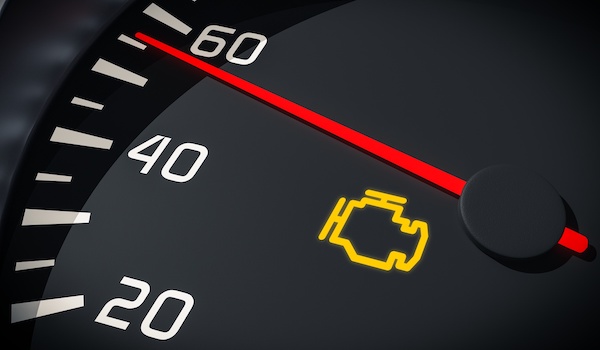
It can be worrisome to be on your way home only for the check engine light to illuminate. It's not only alarming, but it's also confusing. The check engine light doesn't give you very much information on what the problem is. Is the issue worthy for a mechanic, or is it a minor issue that's easily fixable? Below are five common reasons that will cause the check engine light to come on.
Bad Spark Plugs
Spark plugs work to initiate combustion within the engine. Spark plugs can fail over time, but they typically last about 30,000 miles. Higher quality spark plugs can last well over. If you suspect the spark plugs may be the culprit, having them replaced should be quick and affordable.
Loose Gas Cap
A loose gas cap is a simple issue but can leave the check engine light glowing. Pullover when it's safe to do so and check that the cap is securely fastened. If it is, it may be damaged or cracked. Gas caps are relatively inexpensive, but without them, fuel vapors can leak out. This can eventually spell trouble for your engine.
Faulty Oxygen Sensor
The oxygen sensor plays a vital role in monitoring how much fuel is burned and how much oxygen is left unburned. As you drive, your oxygen sensor can get covered with oil ash, reducing its ability to detect any changes within the oxygen and fuel mixture. It's important to have this fixed right away as, without it, the computer within your vehicle will not have correct data. Eventually, it can lead to an increase in emission and a decrease in gas mileage.
A Catalytic Converter Issue
The catalytic converter reduces exhaust gases by converting carbon monoxide and other pollutants into less toxic compounds. If the catalytic converter fails, your vehicle will struggle to accelerate, and you may notice a decrease in gas mileage. With proper maintenance, the catalytic converter shouldn't give you any issues. However, if you have any suspicions, there may be a primary problem that's affecting it.
Mass Airflow Sensor
The mass airflow sensor ensures a vehicle's computer adds an adequate amount of fuel by factoring in the amount of air coming into the engine. The mass air filter can fail due to a dirty air filter or if it's been improperly installed. A vehicle inspection can determine which scenario may be the cause. A faulty mass air flow sensor can cause your vehicle to stall and decrease fuel efficiency.
You can depend on D. Well's Automotive for a detailed inspection and accurate diagnosis the first time around. If your check engine light has come on, click here to schedule an appointment with one of our expert ASE Certified mechanics or give us a call at 847-505-0148.